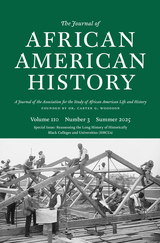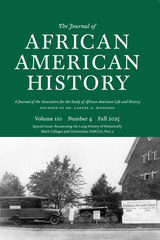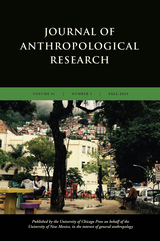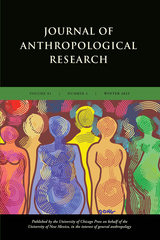7 books about Bauer, Douglas
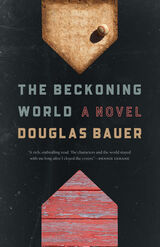
The Beckoning World
A Novel
Douglas Bauer
University of Iowa Press, 2022
The Beckoning World is set in the first quarter of the twentieth century and follows Earl Dunham. His weeks are comprised of six days mining coal, followed by Sundays playing baseball. Then one day a major-league scout happens on a game, signs Earl, and he begins a life he had no idea he could even dream.
But dreams sometimes suffer from a lovely abundance, and in Earl’s case her name is Emily Marchand. They fall quickly and deeply in love, but with that love comes heartbreaking complications.
The Beckoning World gathers a cast of characters that include Babe Ruth and Lou Gehrig; a huge-hearted Pullman steward offering aphoristic wisdom; and countless others, not least of which is the 1918 Spanish flu taking vivid spectral form. At the center is a relentless love that Earl and Emily are defenseless against, allied as they are “in this business of their hearts.”
But dreams sometimes suffer from a lovely abundance, and in Earl’s case her name is Emily Marchand. They fall quickly and deeply in love, but with that love comes heartbreaking complications.
The Beckoning World gathers a cast of characters that include Babe Ruth and Lou Gehrig; a huge-hearted Pullman steward offering aphoristic wisdom; and countless others, not least of which is the 1918 Spanish flu taking vivid spectral form. At the center is a relentless love that Earl and Emily are defenseless against, allied as they are “in this business of their hearts.”
[more]
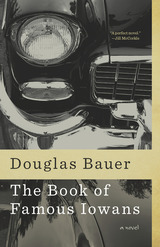
The Book of Famous Iowans
A Novel
Douglas Bauer
University of Iowa Press, 2014
Will Vaughn, a man of late middle age living in Chicago with his second wife, remembers the month of June 1957 in his hometown, the rural village of New Holland, Iowa. More precisely, Will remembers just a few days of that month and the quick sequence of astonishing events that have colored, ever since, the logic of his heart and the moods of his mind. He tells of his stunningly beautiful young mother, Leanne, who liked to recall the years of the Second World War, during which she sang with a dance band in a lounge in Cheyenne, Wyoming. He tells too of his father, Lewis, a soldier in the war who one night saw the “resplendently sequined” Leanne step onstage and began at that instant to plot his courtship of her.
But mostly what Will summons up in his intimate remembrance are those few catastrophic days in early June when he was “three months shy of twelve,” more than a decade after his parents have married and returned to the Vaughns’ home place, where Lewis farms his family’s land. For it is during those days that Leanne’s affair with a local man named Bobby Markum becomes known—first to Lewis and then, in a fiercely dramatic public confrontation, to young Will, to his beloved Grandmother Vaughn, and by nightfall to all the citizens of the town. The knowledge of such scandal, in so small a place, sets off a series of highly charged reactions, vivid consequences that surely determine the fates of every member of this unforgettable family.
A tale of memory and hero worship and the restless pulse of longing, The Book of Famous Iowans examines those forces that define not only a state made up of a physical geography, but more important, those states of the wholly human spirit.
But mostly what Will summons up in his intimate remembrance are those few catastrophic days in early June when he was “three months shy of twelve,” more than a decade after his parents have married and returned to the Vaughns’ home place, where Lewis farms his family’s land. For it is during those days that Leanne’s affair with a local man named Bobby Markum becomes known—first to Lewis and then, in a fiercely dramatic public confrontation, to young Will, to his beloved Grandmother Vaughn, and by nightfall to all the citizens of the town. The knowledge of such scandal, in so small a place, sets off a series of highly charged reactions, vivid consequences that surely determine the fates of every member of this unforgettable family.
A tale of memory and hero worship and the restless pulse of longing, The Book of Famous Iowans examines those forces that define not only a state made up of a physical geography, but more important, those states of the wholly human spirit.
[more]
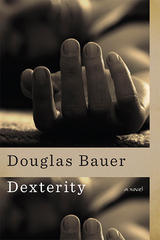
Dexterity
A Novel
Douglas Bauer
University of Iowa Press, 2014
Douglas Bauer’s profound and exquisitely written first novel quickly established him as one of America’s best new writers. This is the story of Ed and Ramona, high school lovers who married young. And when Ramona, seeing the ever-clearer reality of life with Ed, turns and walks away from her house, from her life, and from her small baby boy, Ed is stunned into a depth of uncomprehending rage. With a deer hunter’s patience and a maniacal precision, Ed gathers what he needs and, in the dark of early winter, leaves to find his wife.
This darkly poetic novel is imbued with the same tough and tender understanding of the emotional lives of real people that distinguishes Bauer’s subsequent novels, The Very Air and The Book of Famous Iowans.
This darkly poetic novel is imbued with the same tough and tender understanding of the emotional lives of real people that distinguishes Bauer’s subsequent novels, The Very Air and The Book of Famous Iowans.
[more]
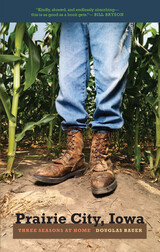
Prairie City, Iowa
Three Seasons at Home
Douglas Bauer
University of Iowa Press, 1979
Weary from the journalistic treadmill of "going from one assignment to the next, like an itinerant fieldworker moving to his harvests" and healing from a divorce, Douglas Bauer decided it was time to return to his hometown. Back in Prairie City, he helped on his father's farm, scooped grains at the Co-op, and tended bar at the Cardinal. The resultant memoir is a classic picture of an adult experiencing one's childhood roots as a grown-up and testing whether one can ever truly go home again.
Bauer grew up "awkward with soil and with machines" in a small town east of Des Moines, As a teenager, he left the farm for college life twenty miles away and, after graduation, took a job with Better Homes and Gardens in Des Moines, writing in the junk-mail fictional persona of "Barbara Joyce,"asking millions of people to subscribe. After a few years he moved to Chicago to work as an editor and writer for Playboy and eventually as a freelance journalist. In the summer of 1975, he returned home to attend his grandmother's funeral and by autumn he moved back to Prairie City, where he stayed for the next three seasons.
Bauer's book is neither a wistful nostalgia about returning to a simpler time and place nor a patronizing look at those who never leave the town in which they were born. What emerges is an unsentimental yet loving account of life in the Midwest. Not just a portrait of Prairie City, Iowa, but of everyone's small town, everywhere.
Bauer grew up "awkward with soil and with machines" in a small town east of Des Moines, As a teenager, he left the farm for college life twenty miles away and, after graduation, took a job with Better Homes and Gardens in Des Moines, writing in the junk-mail fictional persona of "Barbara Joyce,"asking millions of people to subscribe. After a few years he moved to Chicago to work as an editor and writer for Playboy and eventually as a freelance journalist. In the summer of 1975, he returned home to attend his grandmother's funeral and by autumn he moved back to Prairie City, where he stayed for the next three seasons.
Bauer's book is neither a wistful nostalgia about returning to a simpler time and place nor a patronizing look at those who never leave the town in which they were born. What emerges is an unsentimental yet loving account of life in the Midwest. Not just a portrait of Prairie City, Iowa, but of everyone's small town, everywhere.
[more]
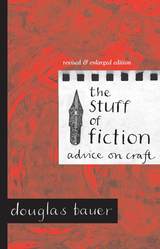
The Stuff of Fiction
Advice on Craft
Douglas Bauer
University of Michigan Press, 2010
In this book, prizewinning novelist and popular creative writing instructor Douglas Bauer (The Book of Famous Iowans) shares the secrets of his trade. Talent, as Bauer acknowledges, is the most crucial element for a writer and cannot be taught. But without a regular habit of work, and a perseverance of effort, no amount of talent can come forward and be recognized. His lively and candid essays on subjects critical to the fiction writer’s success demystify the essential elements of fiction writing, how they work, and work together.
Bauer’s focus is on the building blocks of successful fiction: dialogue (the intimate relationship between characters talking and the eavesdropping reader), characters (the virtues of creating fictional characters that are both splendidly flawed and sympathetic), and dramatic events (ways to create moments that produce an emotional and psychological impact). There are also chapters on crafting effective openings and memorable closings of stories and on the vital presence of sentiment in fiction versus the ruinous effect of sentimentality. By assuming the point of view of someone at the task, engaged with the work, inside the effort to bring an invented world to life, The Stuff of Fiction speaks to writers of all ages in a pleasurable yet practical voice.
Bauer’s focus is on the building blocks of successful fiction: dialogue (the intimate relationship between characters talking and the eavesdropping reader), characters (the virtues of creating fictional characters that are both splendidly flawed and sympathetic), and dramatic events (ways to create moments that produce an emotional and psychological impact). There are also chapters on crafting effective openings and memorable closings of stories and on the vital presence of sentiment in fiction versus the ruinous effect of sentimentality. By assuming the point of view of someone at the task, engaged with the work, inside the effort to bring an invented world to life, The Stuff of Fiction speaks to writers of all ages in a pleasurable yet practical voice.
Douglas Bauer is the author of three novels, Dexterity, The Very Air, and The Book of Famous Iowans, and one book of nonfiction, Prairie City, Iowa. He is also a core faculty member with the MFA Program at Bennington College and has received a National Endowment for the Arts grant, a Massachusetts Artists Foundation grant, and two Harvard Danforth Excellence in Teaching Citations.
[more]
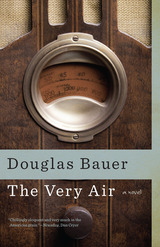
The Very Air
A Novel
Douglas Bauer
University of Iowa Press, 2014
Luther Mathias sells “snake oil” in scrubby West Texas dirt towns. He learns that substance is never a substitute for style and eventually develops his own remedies that promise to cure any ailment a man might suffer. In time, his imagination and ambition combine to mold him into medicine’s version of Elmer Gantry: loved and hated, imponderably wealthy and famous, powerful and pursued.
The Very Air is a compelling exploration of human motives and hidden meanings. It is a detailed picture of America’s myth of the rugged individual in the psychological and narrative tradition of The Great Gatsby and Citizen Kane. With a resonant sense of the period and culture, Douglas Bauer evokes the freewheeling feel of the old Southwest in the charlatans of our own era. The Very Air shows, through storytelling both exhilarating and chilling, that the past is prologue and that our personal histories indeed shape the course of our individual futures.
The Very Air is a compelling exploration of human motives and hidden meanings. It is a detailed picture of America’s myth of the rugged individual in the psychological and narrative tradition of The Great Gatsby and Citizen Kane. With a resonant sense of the period and culture, Douglas Bauer evokes the freewheeling feel of the old Southwest in the charlatans of our own era. The Very Air shows, through storytelling both exhilarating and chilling, that the past is prologue and that our personal histories indeed shape the course of our individual futures.
[more]
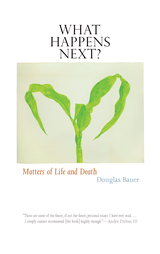
What Happens Next?
Matters of Life and Death
Douglas Bauer
University of Iowa Press, 2013
What is life about but the continuous posing of the questions: what happens next, and what do we make of it when it arrives? In these highly evocative personal essays, Douglas Bauer weaves together the stories of his own and his parents’ lives, the meals they ate, the work and rewards and regrets that defined them, and the inevitable betrayal by their bodies as they aged.
His collection features at its center a long and memory-rich piece seasoned with sensory descriptions of the midday dinners his mother cooked for her farmer husband and father-in-law every noon for many years. It’s this memoir in miniature that sets the table for the other stories that surround it—of love and bitterness, of hungers served and denied. Good food and marvelous meals would take on other revelatory meanings for Bauer as a young man, when he met, became lifelong friends with, and was tutored in the pleasures of an appetite for life by M. F. K. Fisher, the century’s finest writer in English on “the art of eating,” to borrow one of her titles.
The unavoidable companion of the sensual joys of food and friendship is the fragility and ultimately the mortality of the body. As a teenager, Bauer courted sports injuries to impress others, sometimes with his toughness and other times with his vulnerability. And as happens to all of us, eventually his body began to show the common signs of wear—cataracts, an irregular heartbeat, an arthritic knee. That these events might mark the arc of his life became clear when his mother, a few months shy of eighty-seven, slipped on some ice and injured herself.
In these clear-eyed, wry and graceful essays, Douglas Bauer presents with candor and humor the dual calendars of his own mortality and that of his aging parents, evoking the regrets and affirmations inherent in being human.
[more]
READERS
Browse our collection.
PUBLISHERS
See BiblioVault's publisher services.
STUDENT SERVICES
Files for college accessibility offices.
UChicago Accessibility Resources
home | accessibility | search | about | contact us
BiblioVault ® 2001 - 2025
The University of Chicago Press



